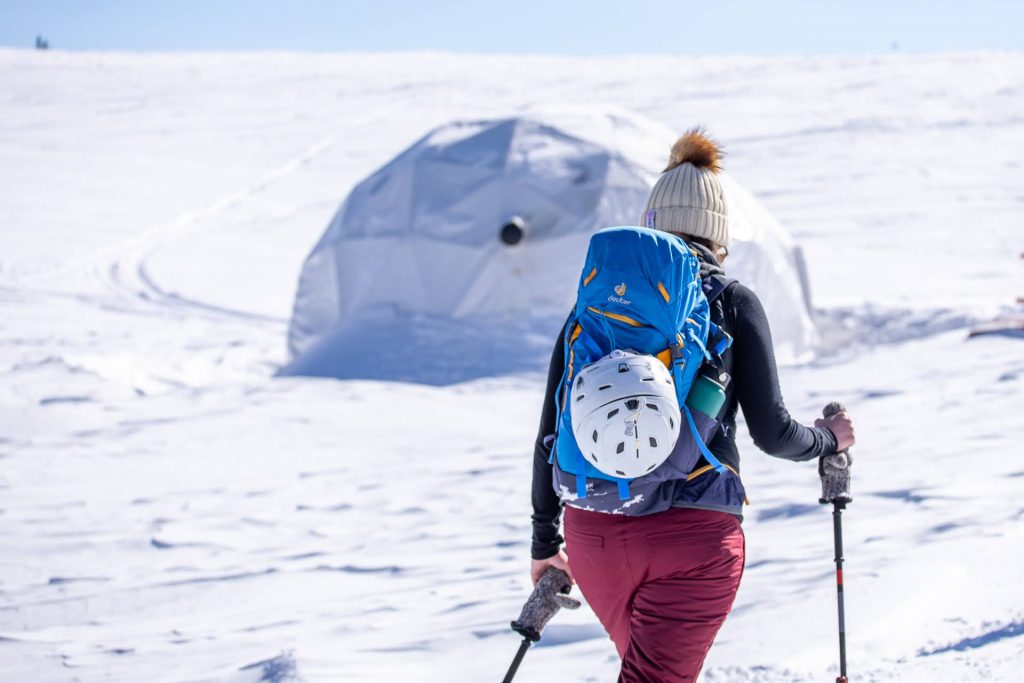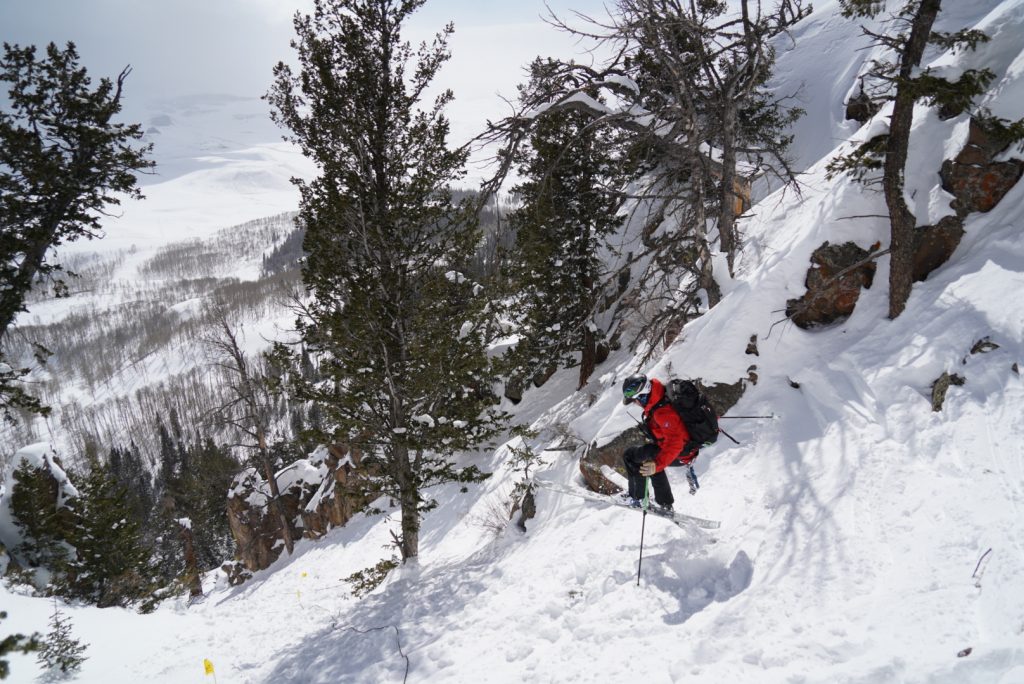Taking advantage of the pandemic-driven increase in backcountry skiing, Colorado’s Bluebird Backcountry, the first “human-powered” ski resort, made as big of strides as its participants in its second year of operation and new Colorado location.
Founded by partners Erik Lambert and Jeff Woodward, the “in-bounds backcountry resort” offers something no other resort does – a lift-free backcountry ski area, guides, instructors, ski patrollers, rentals, warming hut, and base tent. Lambert said that by season’s end, the resort would see at least five times as many visitors as it did last year.
Working on the backcountry ski area concept since 2017, Lambert and Woodward raised more than $100,000 in its inaugural year, opening for a 14-day test season near the current location in February 2020. This year the company moved 10 miles north, expanding its terrain, education and other offerings for its first season at Bear Mountain. The centerpiece is its namesake peak, which straddles the Continental Divide at 9,845 feet.

Located 40 minutes from Steamboat Springs and Kremmling, CO, the ski area includes 1,200 acres of beginner meadows, aspen glades and steeper shots, plus thousands of more acres that guests can access with a Bluebird guide. This year, said Lambert, it welcomed and educated thousands of skiers and riders of all levels since opening December 31.
“We’re super psyched to call Bear Mountain home and had a great year,” said Lambert. “It has plenty of snow and a huge variety of terrain, slope angles and aspects, open slopes, aspen groves, and steep trees. There’s something for everyone. We’ve been blown away by the support we’ve received.”
Its premise is simple. More and more people are “earning their turns,” whether it’s in the backcountry or skinning up a resort. But many, including those new to the sport, don’t know enough about avalanches, or have the right gear, to venture into the backcountry. Bluebird lets customers do so safely with avalanche hazard mitigation in place—patrollers open and close terrain as needed to reduce hazards.
Lambert said they have three main goals with the operation:
- Access: Reducing barriers to entry, making backcountry skiing easier to learn, and providing a less risky and more comfortable backcountry option;
- Education: Reimagining and improving on the existing backcountry education model; and
- Community: Bringing the soul back to skiing by creating a gathering place for the backcountry community.
Avalanche education is a big part of its programming, which is especially applicable in a year like this one with 36 avalanche fatalities in the U.S. as of April 1.
“About a quarter of our guests have never been backcountry skiing before, so our avalanche education courses and our rentals and lessons are popular,” said Lambert, adding that Bluebird is an official AIARE provider. The market is substantial and booming. According to Snowsports Industries America (SIA), there are more than 1.3 million backcountry skiers and riders in the country. Sales of backcountry gear have also markedly risen in the past year, attributed to the pandemic.
“Backcountry skiing has multiple options, from pure backcountry to ski resort touring,” said Ross Herr of backcountry equipment provider Dynafit. “Bluebird increases participation in AT skiing for those looking for a unique experience in a controlled environment.”
And that market could grow with Bluebird as another alternative. “There’s a huge demand for people wanting to figure out how to get started backcountry skiing,” Lambert said. “We’re trying to provide a simple way for people to get started in it without having a mentor and make the sport more welcoming and friendly. The demand for backcountry skiing is outpacing the supply of mentors. The sport has high barriers to entry. Our goal is to help people get started responsibly and instill good habits.”
Some people, he added, are just more risk-averse. “A lot of people, such as new parents or those rusty on their skills, don’t want to put themselves in risky terrain,” he said. “You can see that with the growth of climbing gyms. They opened a door for everyday people to try climbing in a controlled environment. That’s what we’re trying to do with backcountry skiing.”
Next year, Lambert said it haf secured a long-term lease for Bear Mountain and is looking to redraw some of the boundaries to open, including more terrain, adding an advanced education program and other improvements.
Photos courtesy Bluebird Backcountry
















